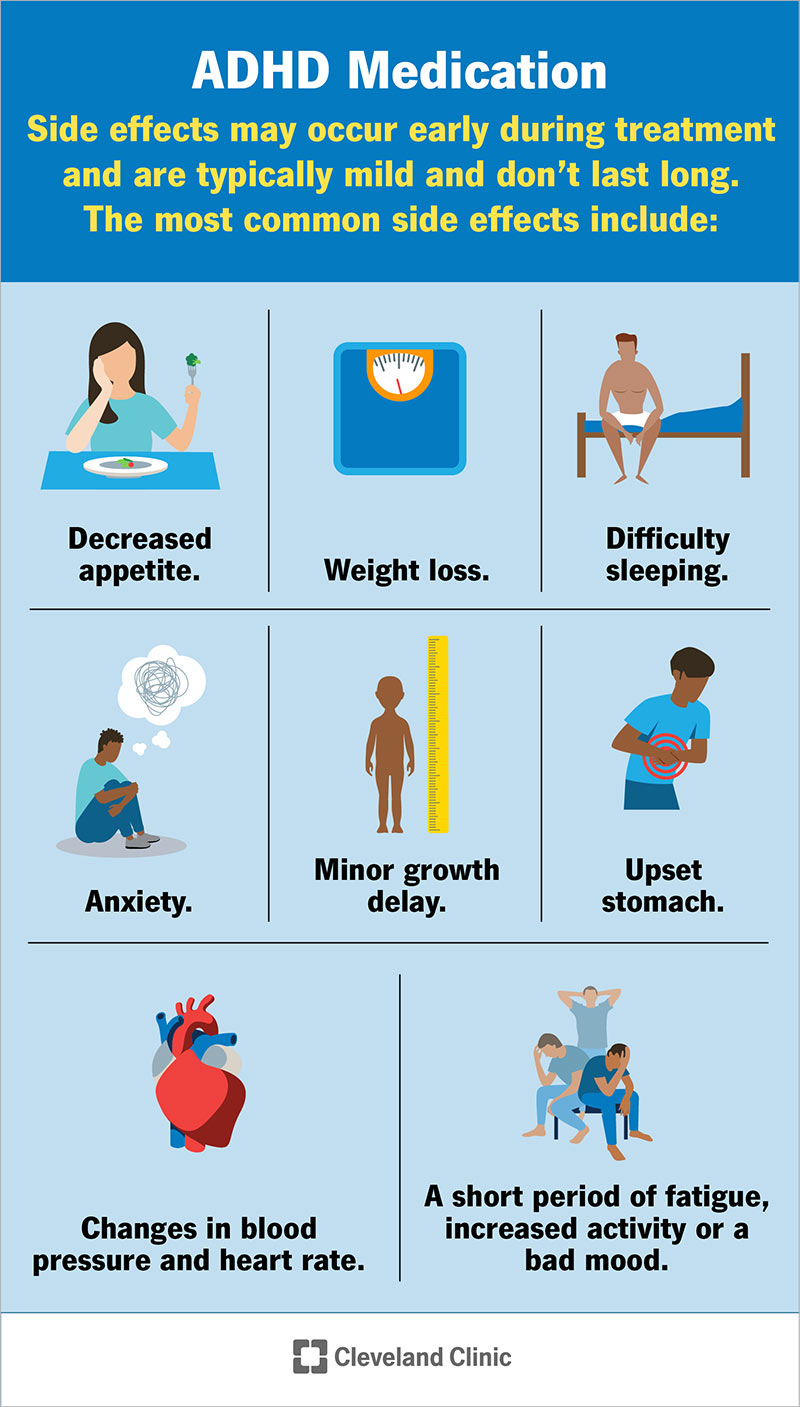Discovering Reliable ADHD Treatment Options for All Ages
The intricacies of Attention deficit disorder (ADHD) present distinct challenges across different age teams, requiring an extensive expedition of efficient treatment alternatives. A mix of behavior therapies, pharmacological treatments, and way of life adjustments has actually shown pledge in attending to the diverse needs of individuals with ADHD. The efficacy of these techniques can differ considerably based on individual situations, raising critical inquiries about customized strategies. As we analyze the spectrum of treatment techniques readily available, it ends up being necessary to take into consideration not only their instant impacts however likewise their long-lasting effects for people and households.
Understanding ADHD and Its Influence
Attention-Deficit/Hyperactivity Disorder (ADHD) is a neurodevelopmental problem characterized by consistent patterns of negligence, hyperactivity, and impulsivity that can substantially influence different facets of an individual's life. It usually shows up in childhood, although signs can linger into their adult years. The core signs and symptoms of ADHD can interrupt academic performance, hinder social communications, and make complex work-related undertakings.
Individuals with ADHD typically have problem with maintaining concentrate on tasks, arranging activities, and following up on instructions, which can bring about scholastic underachievement (Depression Treatment). In social contexts, impulsivity might lead to problems in developing and maintaining partnerships, as people might interrupt conversations or make hasty decisions without thinking about effects
The variability in signs and symptom presentation means that ADHD can influence individuals differently, demanding an individualized technique to monitoring. Comprehensive awareness of ADHD's nature and effects lays the groundwork for exploring appropriate treatment alternatives tailored to each person's requirements.
Behavioral Therapies for ADHD
Many behavior treatments have been created to efficiently address the difficulties associated with ADHD, concentrating on modifying certain behaviors and fostering crucial skills. Amongst the most acknowledged approaches are cognitive-behavioral treatment (CBT), moms and dad training, and social skills training.
CBT helps individuals identify and transform negative idea patterns and behaviors, promoting an extra positive overview and boosted self-regulation. This therapy commonly consists of functional methods for taking care of impulsivity and enhancing company. Parent training programs equip caretakers by equipping them with methods to enhance positive actions and set constant borders, which can be especially useful for youngsters with ADHD.
Social skills training is one more crucial part, teaching people with ADHD just how to communicate successfully with peers - Depression Treatment. This strategy often includes role-playing and comments to improve interaction, cooperation, and dispute resolution skills
Including these behavior therapies into a detailed therapy strategy can significantly improve working and quality of life for individuals with ADHD. Ultimately, the performance of these therapies relies on tailored approaches that consider the special demands of each individual, therefore cultivating resilience and versatility in everyday life.
Medicine Options Available
For many people with ADHD, medicine can play a significant role in managing signs and boosting total functioning. The 2 primary categories of medicines recommended for ADHD are energizers and non-stimulants.
Energizers, such as methylphenidate and amphetamine-based drugs, are one of the most typically utilized therapies. These Depression Doctor medicines function by increasing the degrees of neurotransmitters, specifically dopamine and norepinephrine, in the brain, which aids improve interest and lower impulsivity and attention deficit disorder. They frequently generate fast results, making them a recommended option for many patients.

It is vital for doctor to conduct a thorough evaluation to identify one of the most appropriate drug based upon specific demands, clinical history, and potential side effects. Routine follow-up and tracking are likewise vital to guarantee the efficiency of the chosen therapy and to make any type of necessary changes.
Way Of Living Adjustments to Take Into Consideration
Managing ADHD properly expands beyond drug, as lifestyle adjustments can significantly improve overall wellness and signs and symptom control. Integrating structured routines is essential; consistent schedules aid individuals with ADHD manage their time effectively and decrease sensations of bewilder.
Routine exercise is one more essential component. Workout not only helps to improve concentration however also increases mood and minimizes tension degrees. Tasks such as yoga or group sports can be particularly valuable, advertising both physical conditioning and social communication.
Nourishment additionally plays a pivotal duty. Depression Treatment. A well balanced diet regimen abundant in omega-3 fatty acids, whole grains, and lean healthy proteins can contribute to enhanced focus and cognitive function. Restricting sugar and refined foods is a good idea, as these can intensify attention deficit disorder and impulsivity
Rest hygiene is crucial for taking care of ADHD symptoms. Establishing a normal sleep timetable and producing a peaceful atmosphere can enhance rest high quality, leading to better focus and emotional regulation.
Alternative and Alternative Techniques
Alternative and holistic methods to ADHD therapy use a varied variety of options that enhance conventional techniques. These methods usually concentrate on way of life modifications, nutritional interventions, and restorative methods that intend to boost overall well-being while resolving ADHD signs and symptoms.

Mindfulness and behavioral therapies are also obtaining grip as holistic interventions. Practices such as yoga exercise, reflection, and cognitive-behavioral therapy can cultivate self-regulation and enhance focus. These techniques support emotional durability, which is especially valuable for individuals with ADHD.
Organic supplements, such as ginkgo biloba and ginseng, are in some cases discovered; nevertheless, it is essential to get in touch with health care professionals before including these right into treatment strategies. While option and alternative strategies can offer important support, they should preferably be utilized in conjunction with evidence-based treatments to achieve ideal outcomes for taking care of ADHD across every ages.
Final Thought
In recap, effective ADHD treatment demands a thorough approach that consists of behavioral treatments, drug, way of life modifications, and holistic approaches. Customized treatments can considerably enhance individuals' functioning and lifestyle, while ideal drug makes sure ideal signs and symptom administration. In addition, adopting structured regimens, participating in regular exercise, and practicing mindfulness can improve emotional guideline and attention. This multifaceted method underscores the importance of personalized treatment in resolving the diverse demands of individuals with ADHD across every age groups.